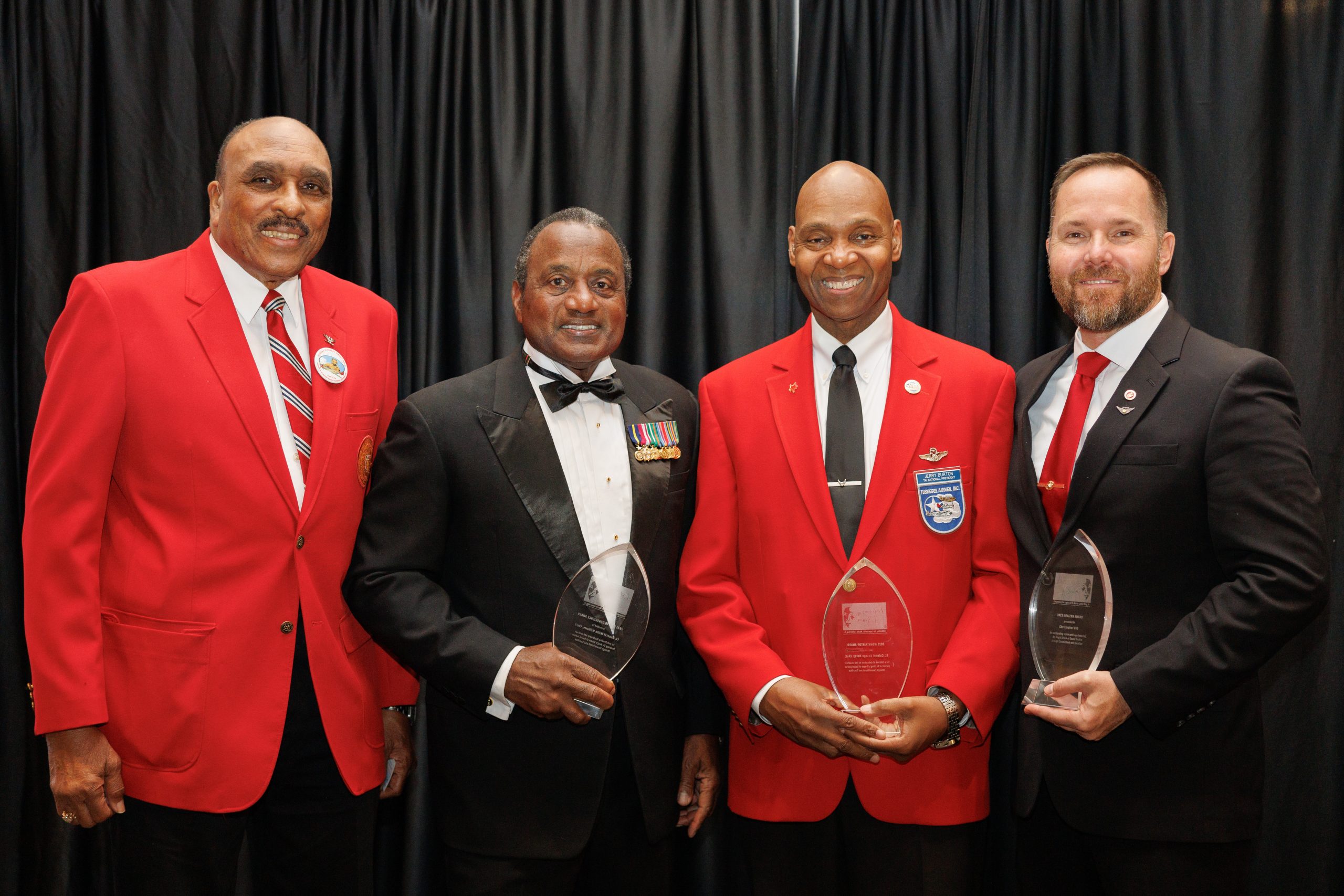2023 Realizing the Dream Legacy Award recipients include Christopher Gill, right, recipient of the Horizon Award; Lt. General Willie J. Williams (Ret), second from left, recipient of the Call to Conscience Award; and Lt. Colonel George Hardy (Ret), not pictured, recipient of the Mountaintop Award. Accepting the award on behalf of Lt. Colonel Hardy are Palmer Sullins, left, Chairman of the Friends of Tuskegee Airmen National Historic Site, Inc., and Jerry “Hawk” Burton, second from right, national president of Tuskegee Airmen Incorporated.
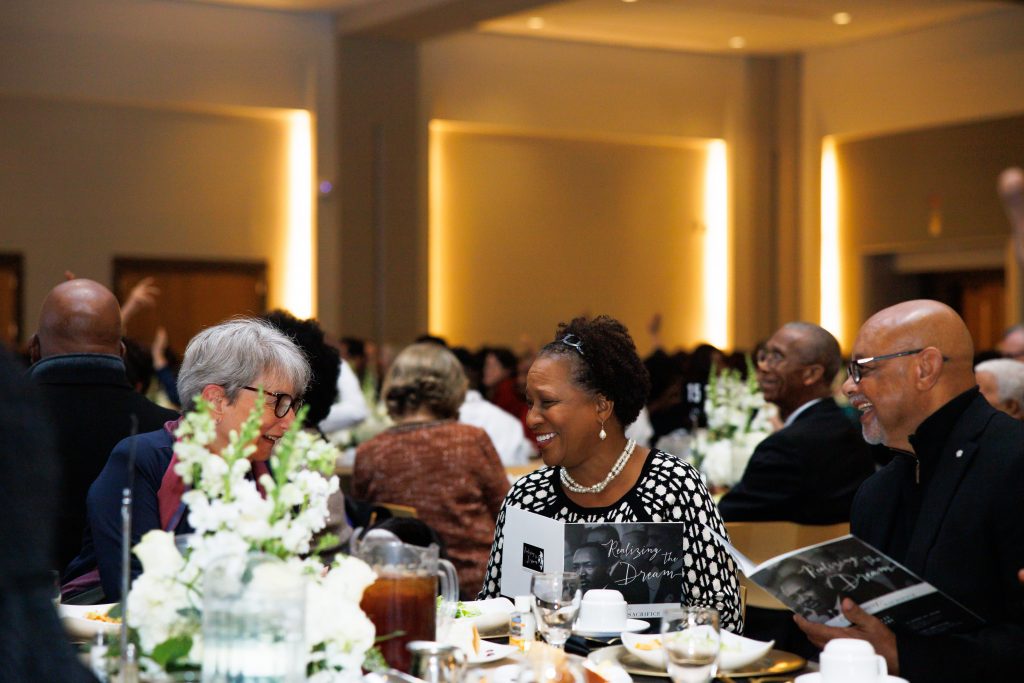
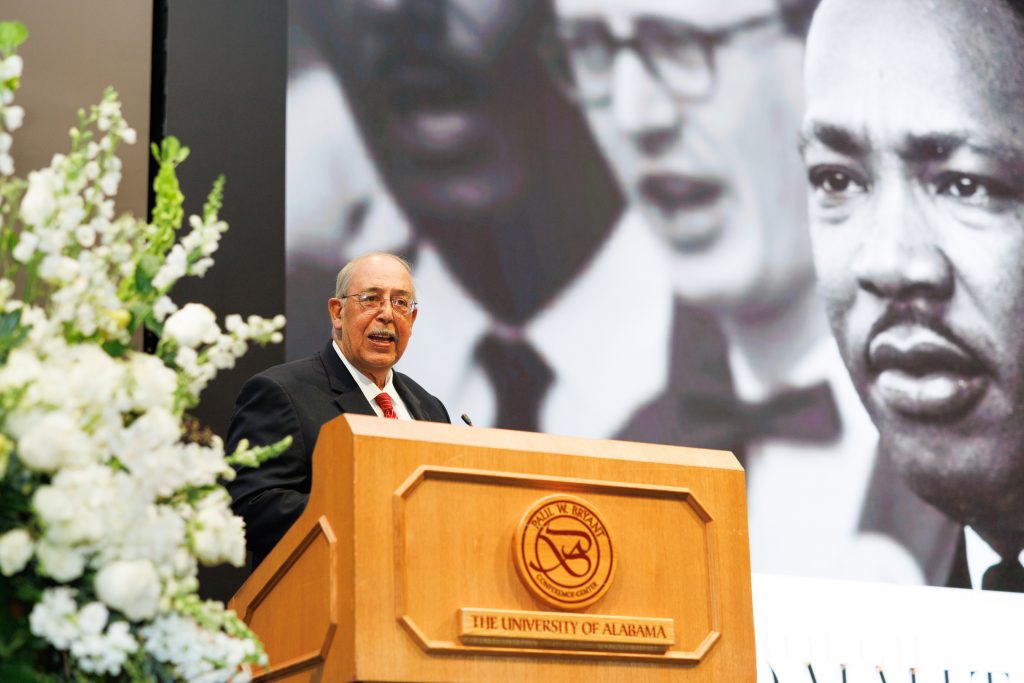
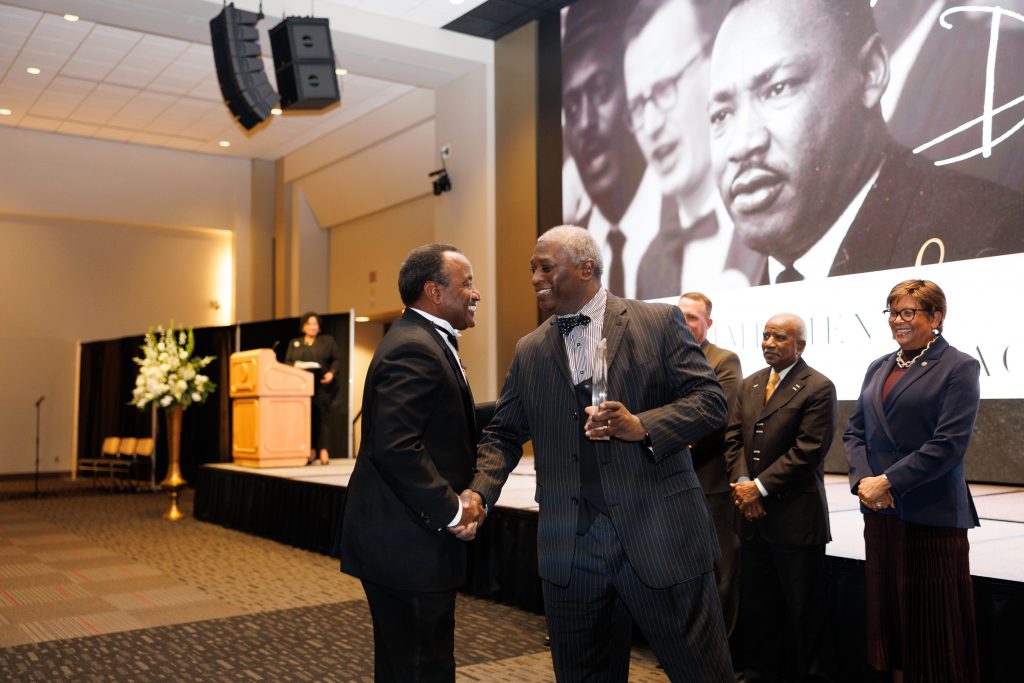
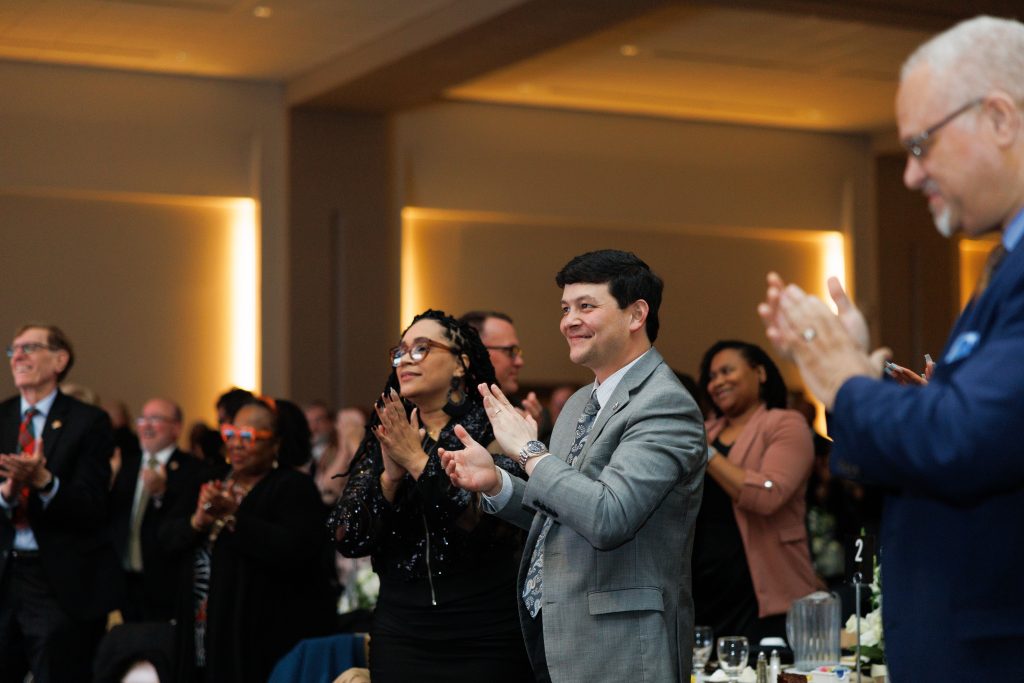
Author: Dr. Elisabetta Zengaro | Communications Specialist, Division of Community Affairs
In remarks at the Bryant Conference Center during which three individuals received Realizing the Dream Legacy awards, Retired Army Lt. Gen. Russel L. Honoré urged his audience to be leaders in their own lives.
Connecting the theme of “Realizing the Dream Through Commitment and Sacrifice,” Honoré spoke about sacrifices made during the “three great wars,” which he said were the Revolutionary War, the Civil War, and the civil rights movement.
Legacy Award Recipients:
Chris Gill
Horizon AwardGill, a United States Marine Corps veteran, is a doctoral candidate in educational psychology in UA’s College of Education. He was recognized for his research on military transition initiatives that help veterans prevent crises that could lead to suicide.
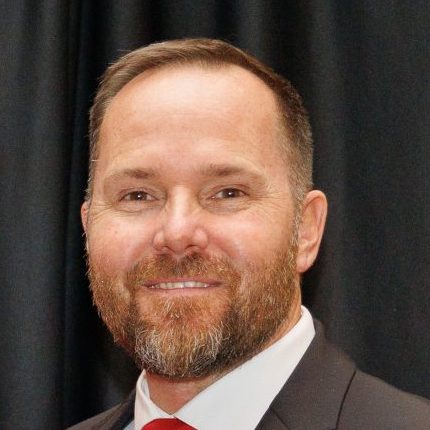
Retired Lt. Gen. Willie J. Williams
Call to Conscience AwardOne of the first three African Americans appointed to the rank of three-star general in the U.S. Marine Corps, Williams was commissioned into the Corps in 1974. Throughout his career he has held a commitment to equality and has worked to inspire social change in the Corps. In 2021, he was honored by Stillman College, his alma mater, with the Institute for Leadership, Education Equity, and Race Relations in America. In the video played at the Legacy Banquet, Williams shared how he collaborated with the State of Alabama and other entities to produce a more equitable distribution of the COVID-19 vaccine throughout underserved areas.
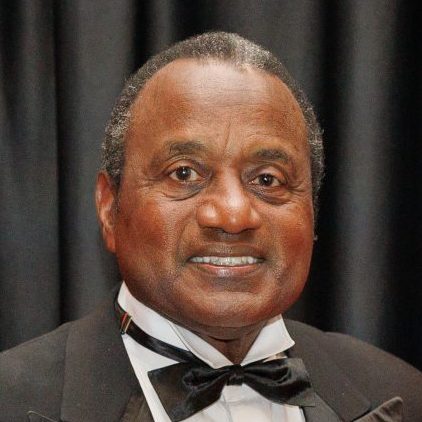
Retired Lt. Col. George Hardy
Mountaintop Award1943 during a time of racial segregation in the U.S. Army. He received his pilot’s wings and was commissioned a second lieutenant in September 1944. He flew 21 combat missions in World War II, 45 in the Korean War, and 70 in Vietnam.
Hardy served with the legendary Tuskegee Airmen during World War II. He graduated from Tuskegee Army Airfield in December 1943 during a time of racial segregation in the U.S. Army. He received his pilot’s wings and was commissioned a second lieutenant in September 1944. He flew 21 combat missions in World War II, 45 in the Korean War, and 70 in Vietnam.
During his 37 years of service in the U.S. Army, Honoré directed the training of half a million soldiers, sailors and airmen all over the world. He became a household name in 2005 when he commanded the task force that responded to Hurricane Katrina. In 2021, at the request of then-House Speaker Nancy Pelosi, he led the investigation into security failures during the Jan. 6, 2021, attack on the U.S. Capitol.
Honoré is known for his “tell it like he sees it” approach to leadership, which echoed throughout his remarks as he talked about the sacrifices made by veterans subjected to racial injustice.
“We’re not asking the students in this university that are here today to do that to preserve freedom,” he said. “All we want you to do is to get off your a– and vote.”
Honoré reminded the audience that King “won the third war in America, the civil rights war.” In its aftermath, young Americans have the duty to continue King’s legacy through voting. While they are not required to serve overseas, Honoré said they still need to serve by making their voices heard at the ballot box.
“I ask you to remind the young people that they’ve got an obligation to live up to the sacrifice that those who came before us made,” Honoré said. “This generation, you don’t have to get on a bus to go to Vietnam or World War I or World War II.” Voting, he said, “is all we’re asking you to do.”
Toward the end of his comments, he advised all to “save your best leadership for when you get home,” noting the importance of leading by example.
Prior to the start of the banquet, Honoré met with students from the host institutions — Stillman College, Shelton State Community College, and The University of Alabama — calling on them to address the challenges facing their generation.
“We’re still a work in progress, but your challenge in your generation is going to be how do you preserve this democracy for your grandchildren,” he told students.
